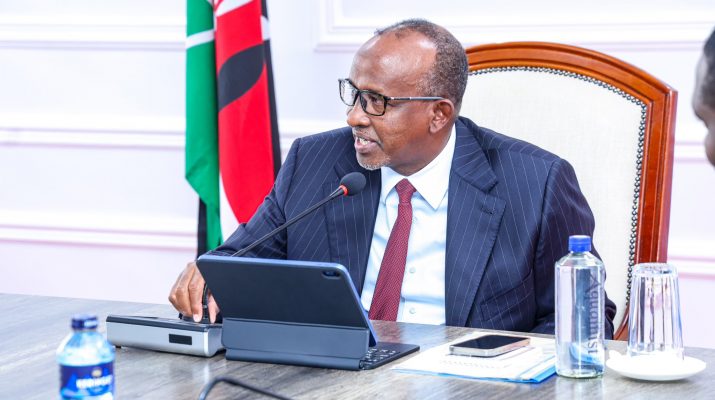By Selian Wangui
The Cabinet Secretary of Health, Aden Duale, has come out strongly to defend the Social Health Authority (SHA) following criticism from Nation Media. He accused the outlet of using patients to push propaganda that serves other interests.
“Nation Media don’t use our valued SHA patients, who we care for their dignity in accessing quality healthcare, for your propaganda serving other interests,” Aden Duale stated.
This comes after the Media station aired a piece detailing how SHA pledged Ksh. 500,000 to support a child’s overseas treatment, but didn’t deliver, leaving the family in distress and stranded.
The Cabinet Secretary stated that, unlike the defunct NHIF, the process for overseas treatment under SHA is governed by multiple legal frameworks. These include the SHI Act and Regulations, the Public Procurement Act and circulars from the Office of the Attorney General regarding foreign contracts.
According to the Cabinet Secretary, the Social Health Insurance Act (SHI Act) mandates that SHA can only make payments to healthcare providers that are empanelled and have a contract with SHA.
Additionally, for a beneficiary to access treatment outside Kenya, the treatment must be unavailable in Kenya, and the beneficiary’s contributions must comply with the SHI Act. The treatment must be carried out at a facility that has a contract with SHA.
He continued to add that overseas facilities must be accredited in their home country and recognized in Kenya and that they must also be linked to an empanelled and contracted Kenyan health facility for follow-up care.
“The Benefits Package and Tariffs Advisory Panel (BPTAP) will annually generate a list of healthcare services that can be accessed outside of Kenya. Currently, a specific list of these services has not yet been gazetted.” He stated.
According to the Cabinet Secretary, the preferred procurement method is open tendering, but SHA plans to seek approval for a “Specially Permitted Procurement Procedure” from the National Treasury. The process will require a written justification, inclusion in the annual procurement plan, and preparation of tender documents to be submitted for approval.
The process also entails that the office of the Attorney General (OAG) must be involved from the beginning to the finalization of all contracts with overseas facilities, which includes negotiation, drafting, and vetting.
The Cabinet Secretary also stated that Board approval is mandatory before any contract with an overseas facility is executed by the CEO.

